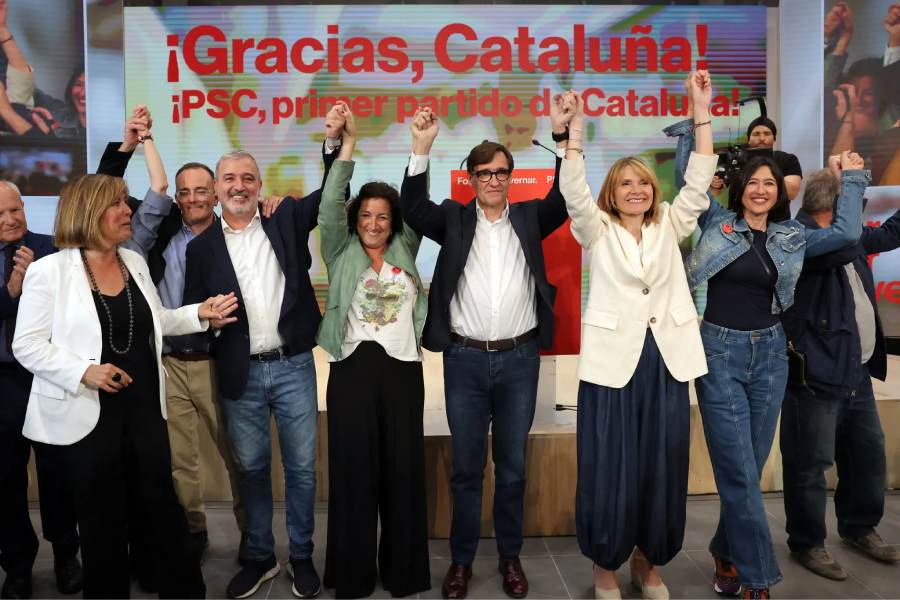Spain’s governing Socialist party emerged Sunday as the winner of regional elections in Catalonia that had been widely seen as a litmus test for Prime Minister Pedro Sánchez’s polarizing amnesty measure for separatists.
The Socialists are celebrating what they claim is a momentous victory, though they did not clinch enough seats to govern on their own. They most likely face weeks of bargaining, and possibly a repeat election if no agreement is reached. But for the first time in more than a decade, they may be able to form a regional government led by an anti-independence party.
Addressing supporters Sunday night at Socialist headquarters in Barcelona, party leader Salvador Illa declared: “For the first time in 45 years, we have won the elections in Catalonia, in terms of both seats and votes. The Catalans have decided to open a new era.”
Still, Illa, who has promised improvements in social services, education and drought management, will need 68 of the Catalan Parliament’s 135 seats to form a government. On Sunday, his party got only 42, meaning he will have to seek support from the pro-independence party Esquerra Republicana de Catalunya (Catalan Republican Left) and the left-wing Comuns.
“Winning does not mean governing,” Toni Rodon, professor of political science at Pompeu Fabra University in Barcelona, said before the results were in. While Esquerra has supported Sánchez in the Spanish Parliament, he said, negotiations in Catalonia are not expected to be easy.
The Socialists’ main rival was the pro-independence Junts per Catalunya (Together for Catalonia), led by Carles Puigdemont, who campaigned from exile in France. Junts came a close second, but with 35 seats would not be able to form a government with other pro-independence parties, which performed badly.
The leader of Esquerra, Pere Aragonès, who is also the departing president of the Catalan government, called the snap election after failing to garner enough support to pass a regional budget. After winning only 20 seats Sunday, his party now faces a reckoning.
Aragonès attributed Esquerra’s poor results to the party’s policy of making agreements with the Socialists, which he said, “have not been valued by the citizens.” From now on, he said, “Esquerra will be in the opposition.”
It was a clear indication that he is not willing to negotiate with Illa, and without the support of Esquerra, Catalonia could be “looking at a new election in October,” Rodon said.
The New York Times News Service











